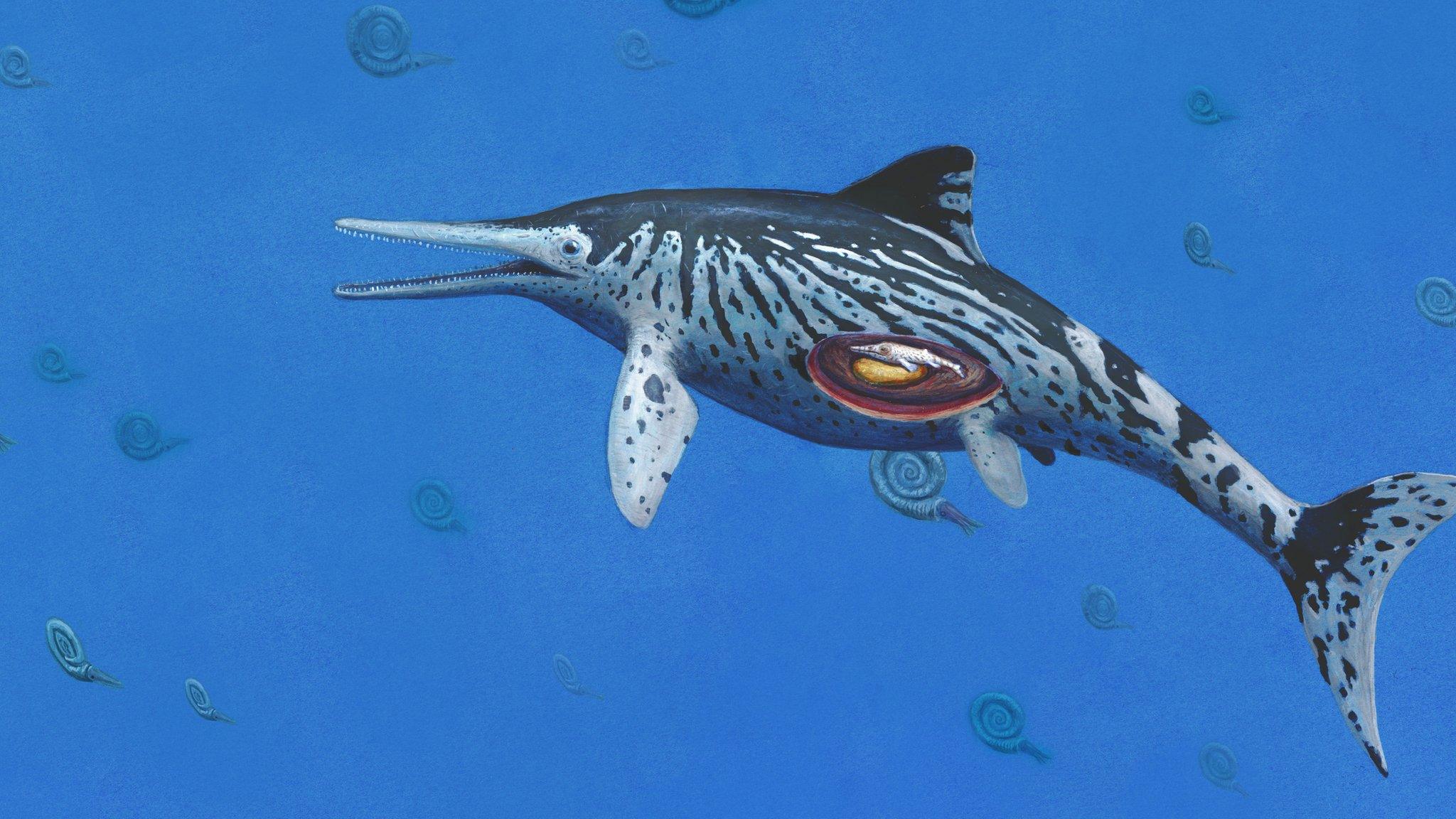Leeds Museum: Woman recalls 'extraordinary' 1949 fossil find
- Published
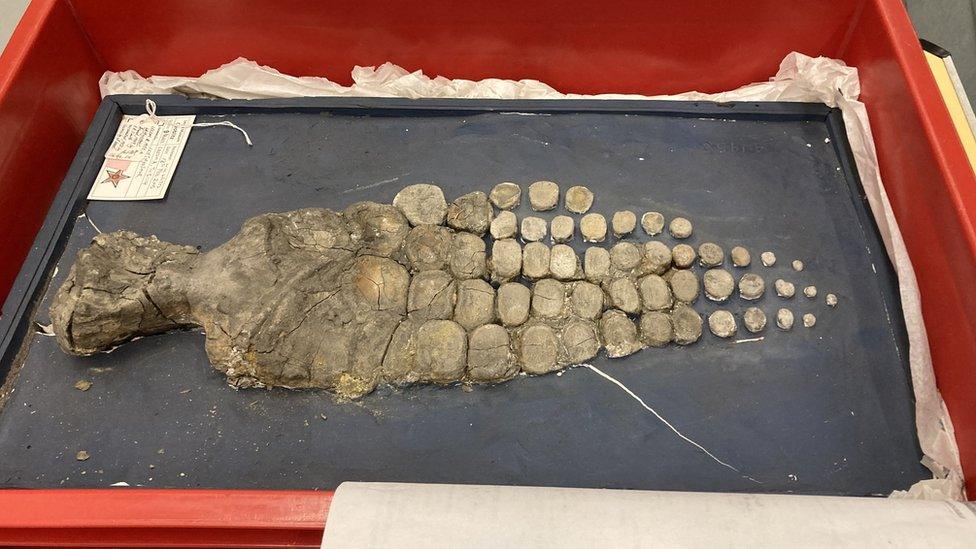
Ichthyosaurs became extinct around 90 million years ago
The prized remains of a prehistoric sea reptile kept at Leeds Museum were discovered by a schoolgirl while fossil hunting on holiday, it has emerged.
Pauline Hoggard was 16 when she found the limb of an ichthyosaur embedded in a cliff in Whitby in 1949.
Recalling the chance discovery, the 88-year-old, from Leicester, said it was a moment she had "never forgotten".
The fossil, which was passed to Leeds Museum, is one of their most impressive prehistoric specimens, experts said.
Ms Hoggard said she had been staying at a boarding house with another family, the Nicholls, and discovered the father shared her passion for fossils.
She said: "He knew where to go exploring, so the next day we went to the beach but we didn't really see anything, just a couple of ammonoids.
"Everyone was getting a bit bored so decided to leave but I was really disappointed so I lingered behind to see what I could find and then I noticed these remains in the rock."
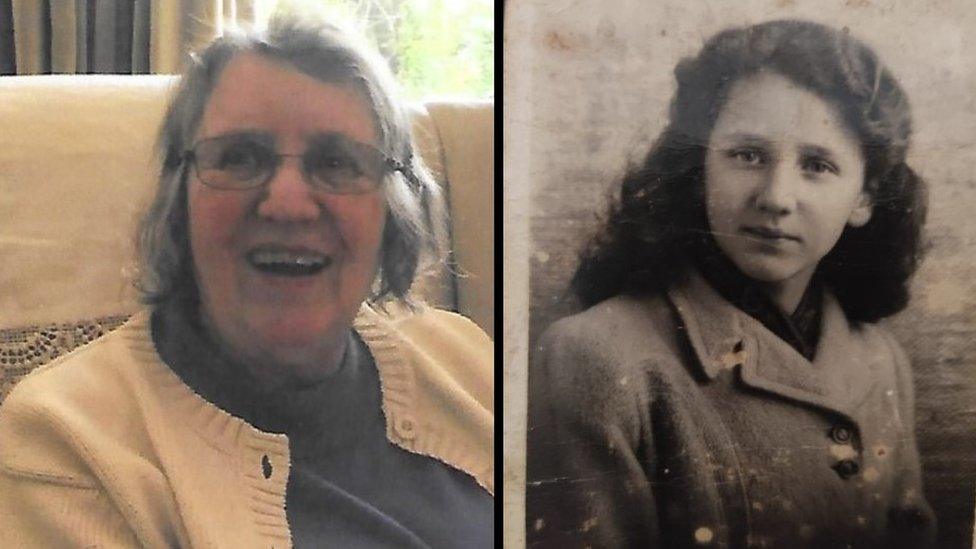
Pauline Hoggard had been holidaying with her family in Whitby
She said Mr Nicholls alerted The University of Leeds, which then organised an excavation and later confirmed she had found the fossilised remains of an ichthyosaur.
The remains were passed to Leeds Museums and Galleries where they have remained part of the collection ever since.

What is an Ichthyosaur?
Often misidentified as "swimming dinosaurs", they first appeared in the early Triassic period (251 million to 199 million years ago)
The name means fish-lizard, although the creature has been classified as a reptile since the mid-19th Century
Its length ranged from 3ft 3in (1m) to 46ft (14m)
The creature was noted for its sharp, robust teeth
Ichthyosaurs became extinct around 90 million years ago
Source: Encyclopaedia of Palaeontology
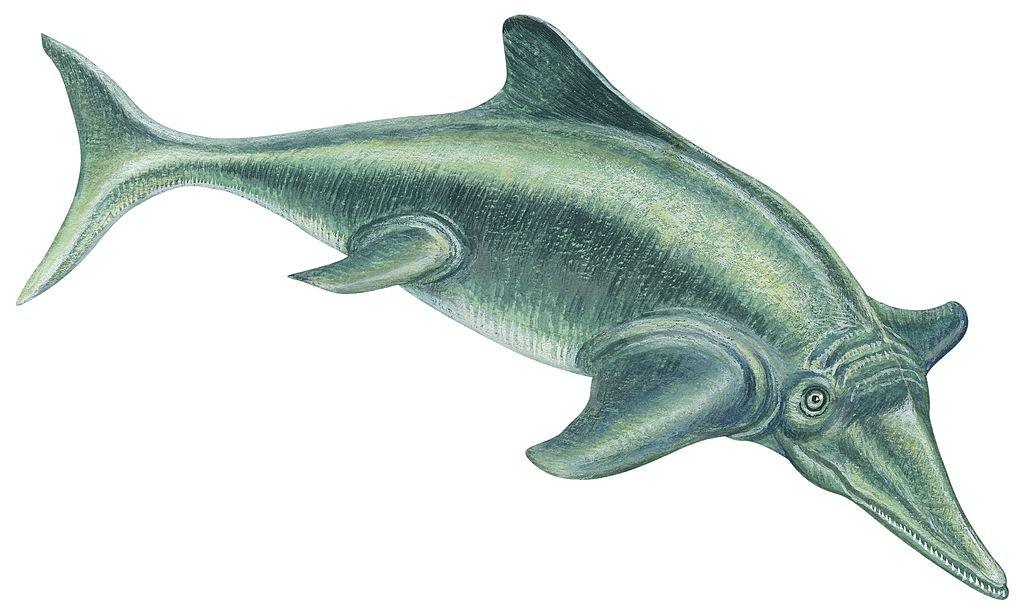
The ichthyosaur was a dolphin-like reptile which is thought to have lived in the sea millions of years ago

Ms Hoggard's story only come to light decades later after recalling the tale to her niece, who then made contact with museum staff and went to look at the fossil.
She said: "I remember it was so exciting to find it but at the time I couldn't seem to get anyone else that excited.
"It's something I've never forgotten and I'm glad I've been able to share the story of how it came to be found."
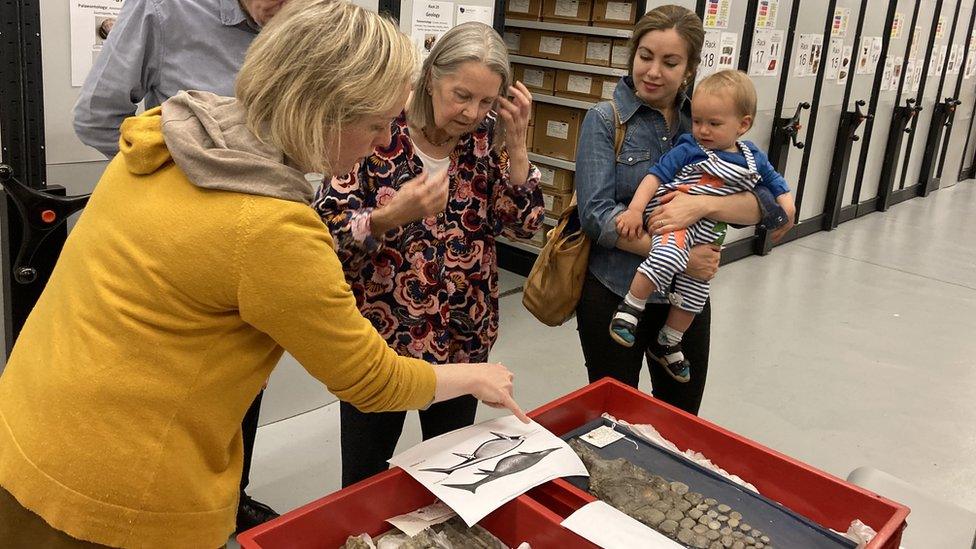
Her family have been fascinated by the story and been to see the fossilised remains
Clare Brown, Leeds Museums and Galleries curator of natural sciences, said: "It's been an absolute delight for all of us to hear about Pauline's story and breathe some new life into an extraordinary specimen that's been part of our collection for decades."

Follow BBC Yorkshire on Facebook, external, Twitter, external and Instagram, external. Send your story ideas to yorkslincs.news@bbc.co.uk or send video here.
Related topics
- Published10 December 2020
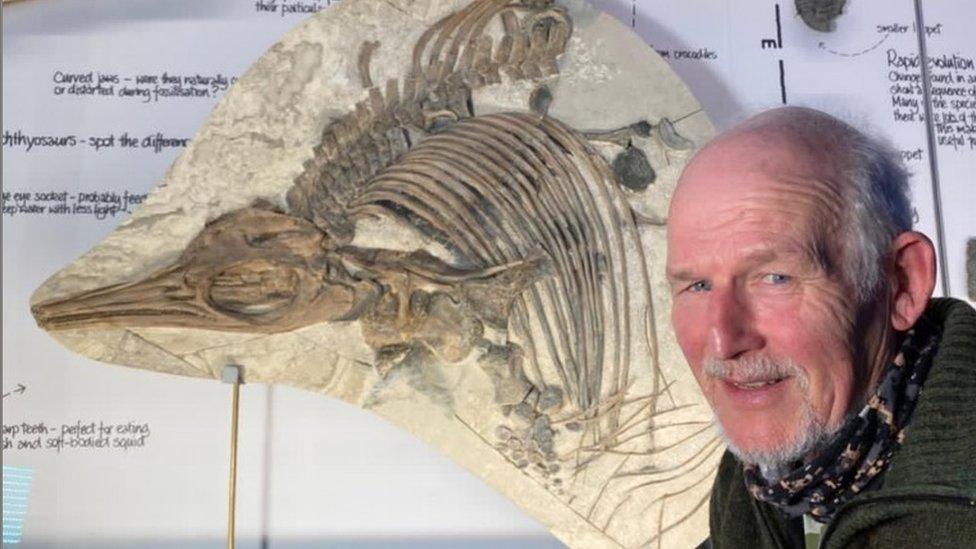
- Published22 January 2020
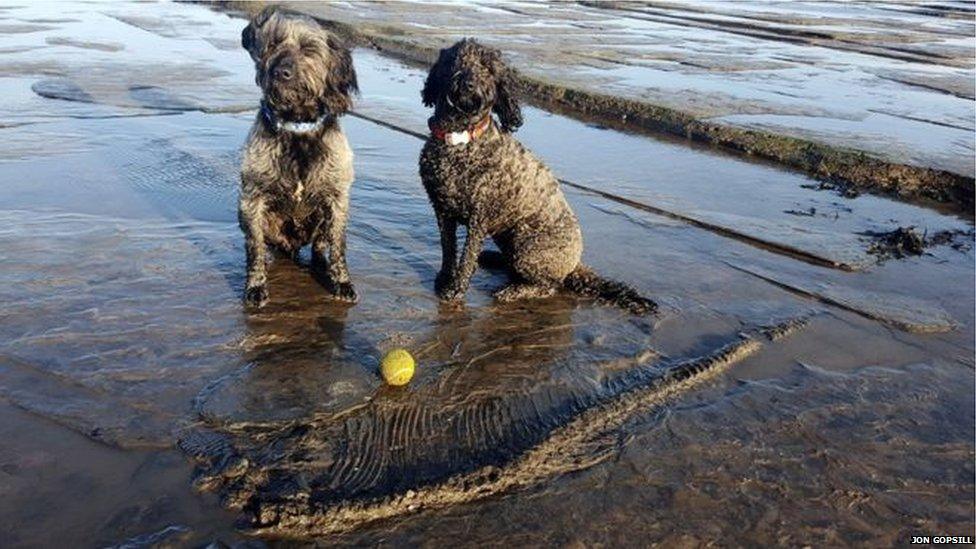
- Published28 August 2017
